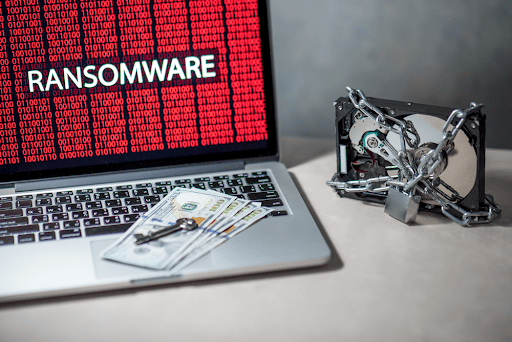For modern companies, digital tools and resources are an essential part of doing business. The cloud, distributed applications and other computing technologies have simplified tasks and increased profits. However, organizations that rely most heavily on data are also at the greatest risk of having data compromised by a malicious attack.
Ransomware is one of the biggest threats to businesses today, with even the most simple of attacks capable of locking them out of their most important assets. Understanding the threat of ransomware is essential for business leaders that want to secure their operations against potential attacks.
The Threat of Ransomware
Many different types of malware can compromise a user’s computing device. Ransomware is a particularly problematic form of malicious software that locks users out of their data while offering a set of demands that must be met for access to be returned.
The threat of ransomware is real and businesses that pay aren’t always guaranteed they’ll get their data back. Business leaders should take into account the repercussions before they pay ransomware settlements.
So Why Do Companies Pay Up?
Companies that fall victim to ransomware attacks are under a lot of pressure to meet specified demands within the defined timeframe. This can lead to poor decision-making and inevitably contribute to larger or repeated threats in the future. Here are five of the main reasons why companies pay ransomware settlements.
1. Poor Planning
Companies often look at the short-term consequences when making important decisions. This is also the case when it comes to digital security. Investing properly in the best infrastructure and support solutions can go a long way toward reducing the potential for a ransomware attack to occur.
2. Faster Recovery
Businesses that use data for important operations might be under pressure when their digital information is compromised. If there are disruptions to service, it can have powerful consequences, such as lost revenue or reduced consumer confidence.
3. Compromised Data
Businesses that fail to properly secure their digital assets can be liable for lost information. If there is a ransomware attack, a company might decide to pay the demanded sum to reduce the potential for legal action.
4. Controlling Costs
For many businesses, the price of losing valuable data is steep compared to paying criminals their demanded sum. Leaders often have to weigh out which choice will likely have the greater cost. This leads to most companies giving into demands.
5. Lack of Knowledge
Although many businesses operate with important data, some companies aren’t fully aware of how dangerous ransomware can be. If your business is thinking about making payments, it’s important to realize how that choice could impact your business for years to come.
Why You Shouldn’t Pay Ransomware Settlements
Most experts agree that businesses shouldn’t pay ransomware settlements. If your business pays a ransomware settlement, you’ll likely be targeted again. Paying criminals gives them the resources they need to continue to attack other businesses. There are also legal liabilities to consider. In some cases, it’s not only unethical but also illegal to hand over consumer data to malicious criminals.
In the end, the best practice is prevention. With this in mind, businesses should work to develop strong ransomware prevention strategies and schedule training so employees know what to do when attacks occur.
